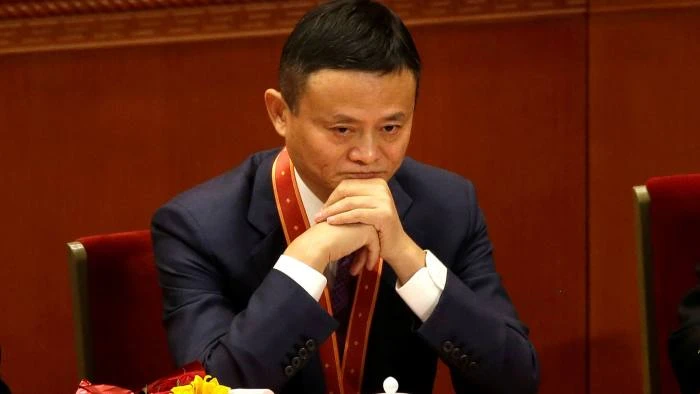
China’s government has told the country’s media to censor reporting on an antitrust probe into tech group Alibaba, whose founder Jack Ma has disappeared from public view as misfortunes mount for his business empire, according to people familiar with the matter.
The move by authorities to exert control over the media coverage of the prominent group’s woes shows that the issue has become a matter of national political sensitivity in China.
Beijing has cracked down in recent months on Mr Ma’s business empire. The $37bn initial public offering of Alibaba’s payments affiliate Ant Group was cancelled by authorities at the last minute in November, while the following month, competition regulators announced an anti-monopoly investigation into Alibaba.
In his last public appearance in October, Mr Ma, one of the country’s richest people, made a speech criticising China’s state-owned banks and financial regulators.
At the end of December, the Chinese government’s propaganda arm directed media outlets to “strictly invoke” the official line on the antitrust investigation into Alibaba and to “not make changes or engage in extended analysis without permission”.
“If any company announcements oppose the official stance, do not publish, do not re-post, do not quote foreign media,” the directive said, according to two people who read it.
Government mouthpiece the People’s Daily have criticised China’s tech industry for pursuing “ever-higher market concentration”, saying that increasing market supervision is important for the healthy development of the economy.
“This directive is severe and unusual,” said Xiao Qiang, a research scientist at the University of California at Berkeley School of Information. “The language [of the directive] is quite similar to the directives on ‘very important political event’ reports such as the trial of Bo Xilai,” he added, referring to the disgraced former politician jailed for life for corruption.
“The investments of Ma’s companies are directly associated with some of China's most powerful political families. The fact that this time he is getting into trouble with the Chinese state likely has high politics in the background, not just because he made one speech which may have hit Xi [Jinping, China’s president] or some other party official's nerve,” said Mr Xiao.
Mr Xi was involved in the decision to halt Ant’s IPO, according to people close to events. Alibaba’s shares have fallen by about 30 per cent in the weeks since.
“I think Beijing is still afraid of Alibaba to a degree . . . The government thinks it’s being challenged,” a state media employee said.

Unofficial media in China, such as online blogs, have continued to speculate on Mr Ma’s whereabouts, although several have been censored.
His empire has come under the scrutiny of several government departments since Ant’s IPO, which would have been the world’s biggest ever, was scuppered by regulators.
In addition to the antitrust investigation into Alibaba, China’s central bank plans to carve out and directly regulate Ant’s consumer-lending unit and other parts of its fintech empire, according to people briefed on the discussions.
The crackdown on Mr Ma has raised concerns among investors and entrepreneurs that the policy moves go beyond regulation and are more about politics and showing the tech billionaire who is the ultimate boss.
In November, the vice-chair of the state propaganda arm told a conference of Chinese media outlets to “resolutely prevent the risk of capital controlling public opinion”.
Last month, Alibaba-backed media platform Huxiu was made to halt its operations for a month after publishing an editorial that warned against excessive punishment of China’s tech groups.
The editorial argued that US business monopolies had helped the country achieve global market dominance, while China’s tech firms were not large enough to warrant antitrust probes.
“When it comes to Chinese companies taking on the world, one cannot rely solely on Huawei, but also Tencent, Alibaba, ByteDance, Baidu, Xiaomi, BYD,” it concluded, referring to some of China’s leading technology companies.




















